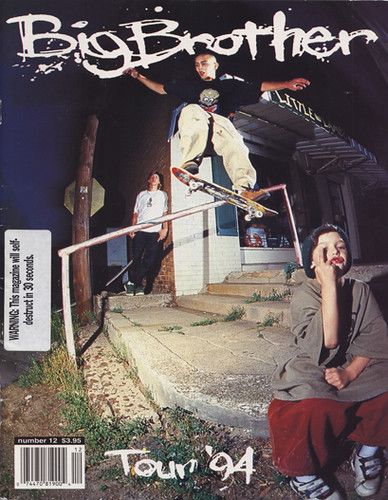Big Brother
Big Brother was a notable American magazine in the realm of skateboarding. It was conceived in 1992 by Steve Rocco and Rodney Mullen, co-owners of the World Industries skateboarding company. The publication was an unorthodox blend of skateboarding content, humor, and daring exploits, designed to appeal to its youthful and rebellious audience. 
The magazine was a significant platform for many prominent personalities, including Jeff Tremaine, who would later helm the successful Jackass franchise. Big Brother became an integral part of the Jackass narrative, as it was through the magazine that Tremaine met Johnny Knoxville, a collaboration that eventually led to the creation of the Jackass television series and subsequent films.
The magazine was notable for its uninhibited content, often pushing boundaries and courting controversy. Its pages were filled with irreverent humor and audacious stunts, reflecting the adventurous spirit of skateboarding culture. The magazine was also known for its distinctive style of journalism, featuring interviews, editorials, and articles that were as much about the writers and their exploits as they were about skateboarding.
Despite its influence on skateboarding culture and its role as a springboard for numerous careers, Big Brother faced criticism and controversy. Its freewheeling style and often explicit content drew scrutiny, and it experienced issues with censorship and distribution. Despite these challenges, the magazine continued to be a significant voice in skateboarding culture until its eventual demise in 2004.
The legacy of Big Brother extends beyond its printed pages. In 2016, a documentary titled “Dumb: The Story of Big Brother Magazine” was released, providing an in-depth look at the magazine’s history. The documentary featured interviews with many of the key figures involved with the magazine, offering a glimpse into the ethos and culture that defined Big Brother.
Big Brother has left an indelible mark on skateboarding culture. Through its unique blend of irreverent humor, daring stunts, and unfiltered commentary, it captured the spirit of a generation and left a lasting legacy that continues to influence today’s skateboarding scene.{{Categories}}